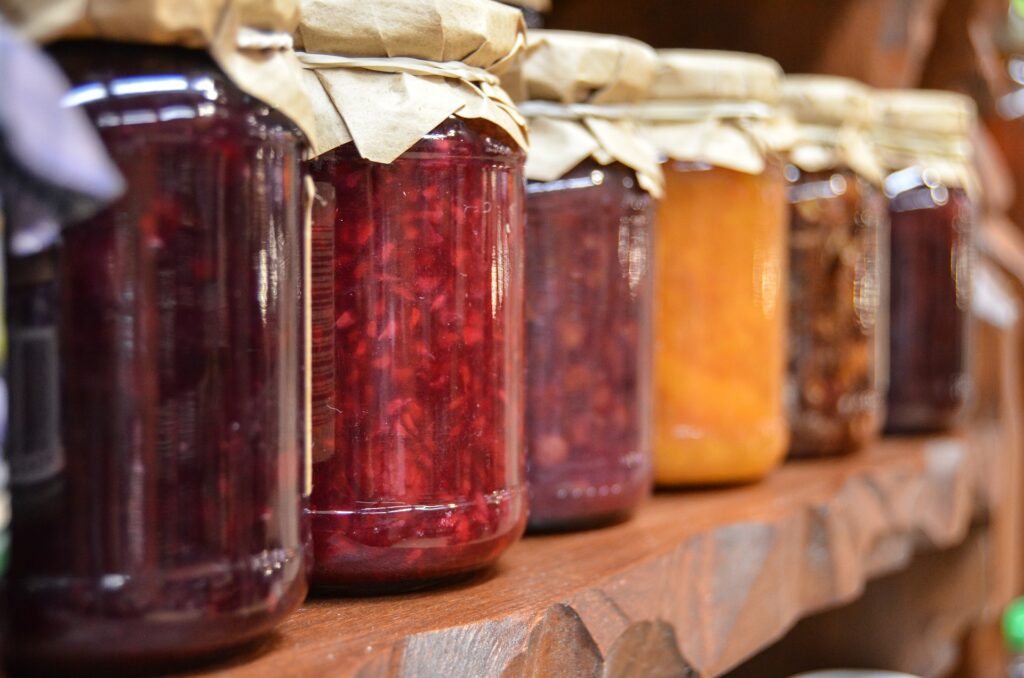 Selection of microbial starters for the production of new fermented sea fennel preserves.
Selection of microbial starters for the production of new fermented sea fennel preserves.
Sea fennel (Crithmum maritimum L.) is a facultative halophyte suffruticose plant, containing several bioactive compounds like polyphenols, carotenoids, omega-3 and omega-6 essential fatty acids, as well as essential oils. The sprouts of this plant are used to enrich salads or as a side dish, and are marketed in non-fermented preserves in oil or vinegar and sauce.
In the current food context, based on the rediscovery of traditional products with high nutritional value, the aim of a recent study, conducted by a group of Italian researchers (Marcelli et al., 2020), was to select strains of lactic acid bacteria (LAB) for the formulation of starters for the fermentation of sea fennel sprouts in brine, creating a new prototype of vegetable preserves.
In summary, the results obtained so far show the suitability of the selected micro-organisms for the development of a micro-biologically safe food, with pH values below 4.6, able, therefore, to inhibit the germination of Clostridium botulinum spores. Although further research is still needed to explore other quality aspects of the product, the proposed strategy opens up new prospects for the formulation of new plant preserves.
Oxidative stability of vegetable purées enriched with polyunsaturated fatty acids
Long-chain omega-3 polyunsaturated fatty acids (n-3-LC-PUFA) are associated with beneficial effects in the context of preventing cardiovascular decompensation and developing f normal brain function. These compounds, however, are highly susceptible to lipid oxidation due to their large allylic hydrogen content.
The presence of (endogenous) antioxidants in the food matrix into which n-3-LC-PUFA are inserted can help protect them from these phenomena. Therefore, the aim of a recent study carried out by a group of Belgian researchers [Gheysen et al., 2020], was to analyse the oxidative stability of different vegetable purées enriched with microalgal biomass (Schizochytrium) characterized by a high content of n-3-LC-PUFA.
The food matrices used for the experiment (broccoli, carrot and tomato sauce) were selected on the basis of their commercial importance and their different amounts of endogenous antioxidants. The purées were enriched with microalgae to reach a concentration of 80 mg of n-3-LC-PUFA/100 g of product. The samples were then characterised in terms of their tendency to oxidation during a period of 12 weeks of storage at 37°C, quantity of carotenoids, phenolic compounds and ascorbic acid.
The results show that antioxidants in the food matrix strongly influence the stability of the enriched product. In fact, although all samples are prone to oxidation, broccoli purées and tomato purées were much more stable than carrot purées. According to the authors, this is due to the fact that the first two products contain compounds (lycopene and lutein) with a higher antioxidant power than those contained in the last product (alpha- and beta-carotene).
In addition, different concentrations of phenols and possible synergistic effects between different substances can also play a key role in limiting oxidative phenomena. In conclusion, the results obtained so far can be used by the industry in the development of high-quality functional preserves.
References: Marcelli et al., Industrie Alimentari, 59, 2020, 3-11; Gheysen et al., International Journal of Food Science and Technology, 22, 2020, 751-759



